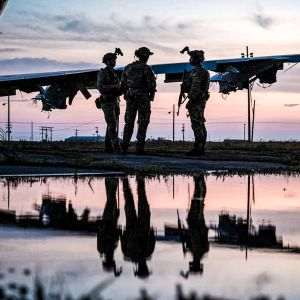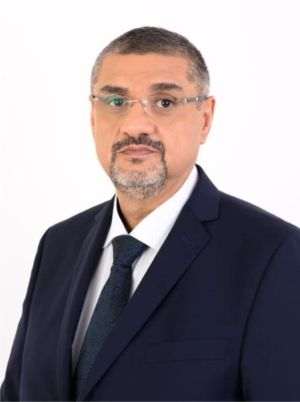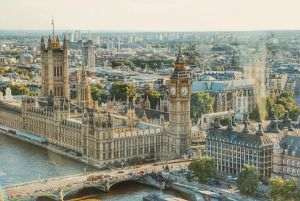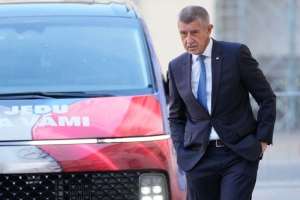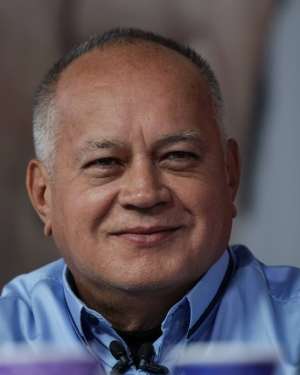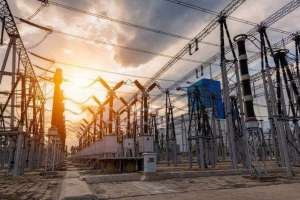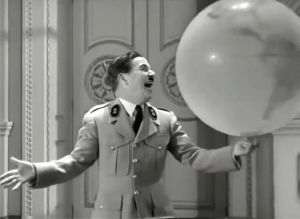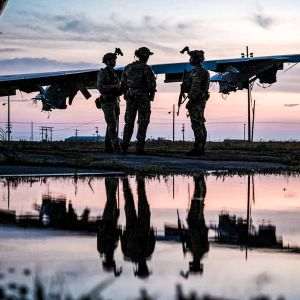Published this week, the interview with Iulian Fota, the presidential advisor of president Traian Băsescu, sparked reactions among our readers.
A posting by a reader on the www.bursa.ro website states: "Indeed, this interview is very good and very opportune! But a question remains: what does Bursa know and it doesn't say or what did it forget to ask Mr. Fota concerning the visit of the two major chiefs of the rival secret services. It can't be a coincidence that they met in Romania at a time when the relations between their respective countries are so tense".
Of course, our reader is referring to the visit in Romania of Nikolai Patrushev, the secretary of the Security Council of the Russian Federation, and of John O. Brennan, the head of the CIA, which have overlapped precisely one day before we published the interview with Iulian Fota.
Another reader wrote: "Spot on; avoiding any question/comment on the visit of the two is either an intentional < oversight >... or Bursa can't do more than that".
Reader "Lucreţia" replied to the second reader: "This phrase, < Bursa can't do more >, is a way of inciting their journalists to publish an article on the topic you suggested. Perhaps you want to do some investigations yoursel on the subject matter and to help the people at Bursa. In the end, what is your goal?
To slander some people who reveal things to < wake > people up or to help this process of awareness ourselves? After all, what is happening affects us all ".
It bears mentioning that in Wednesday's interview, we have published some inserts which provided the general data of the visit of the two foreigners in Romania.
But, without pretending that we have been set off by our readers, we present below a few possible scenarios about the reasons behind the two visits.
• Scenario I - Moldova and Transnistria
The fact that the Republic of Moldova has began getting closer to the European Union has become a reason for Russia to worry, as Romania supports Moldova in its approach.
This week, information has surfaced that the occurrence of a conflict in the region is imminent. Some people say that violent clashes could occur, to force the Moldovan government to drop their "European dream". On the other hand, the Russians, through their deputy Prime-Minister Dmitri Rogozin, support the idea of the Republic of Moldova getting closer to the future Eurasian Union, a proposal for the former soviet states, as well as for other countries which are culturally close to Russia, to deepen the economic and political integration into a supranational union.
In autumn this year, in Vilnius, the Republic of Moldova may sign the agreement with the European Union, a situation which created commotion in Kishinev, as well as in Moscow.
Russia can't afford to lose control of Moldova, as this region gives it a strategically advantageous position, especially when considering that the Eastern border of Moldova is less than 90 km away from Odessa, the main gateway for the Russian naval forces into the Black Sea and the Mediterranean Sea.
The control which Russia exerts in Moldova is achieved, to an extent, with the help of the "cold conflict" in Transnistria.
History has shown that, whenever Moldova gets too close to the EU, out comes the Transnistrian card.
in 2010, Germany and Russia (Angela Merkel and former president Medvedev) signed a memorandum between the EU and Russia concerning the creation of a "EU-Russia Security Committee", with one of the main items on this treaty being the finding of a solution to the "Transnistrian problem". At the time, the German chancellor asked Dmitri Medvedev to withdraw the Russian troops from Transnistria, in exchange for supporting his initiative on the Treaty for European Security. In spite of this, Russian troops are still stationed in Transnistria.
The Romanian authorities are supporting Moldova and Ukraine joining the European Union.
In the talks of Bucharest with Nikolai Patrushev the problem of Transnistria was broached. Traian Băsescu said: "We feel that Transnistria is important for Romania's security and it is also important to have the entire Republic of Moldova be autonomous and under the control of the Government in Kishinev (...) The meeting has also revealed some disagreements, but we have agreed that Mr. Patrushev would convey to president Putin our openness to cooperate and while we can cooperate on common risks, we can also speak about things on which we have different points of view".
Political sources have also said that one of the topics discussed by German chancellor Angela Merkel with Prime Minister Victor Ponta, in the beginning of June, was the issue of Transnistria.
Secretary of State Bogdan Aurescu, this week had consultations with ambassador Sergej Pirozhkov, the representative of Ukraine in the negotiations concerning the settling of the Transnistrian issue, in a "5+2" format, to identify a viable political solution in the Transnistrian problem.
The "5+2" format brings to the negotiation table the representatives of Ukraine, the Russian Federation, the OSCE, the Republic of Moldova and the de facto authorities in Tiraspol, as well as those of the EU and the US. Since the negotiations resumed, in autumn 2011, eight rounds of negotiations took place, of which the latest in Odessa, between May 23rd-24th, 2013.
While Patrushev was in Romania, Moldova was being visited by one of Putin's ideological parents, Alecsander Dughin, the one promoting the Eurasian idea. According to Dugin's statements, Moldova's place is with the Eurasian Union, and less with the EU. "Moldova can only join NATO, but not the European Union, which is destroying itself".
Moreover, speaking on a local TV station, Dugin explained that Russia is willing to resort to any means to defend its borders.
"For Russia, its number one goal is to defend its borders and not to have the NATO block on its borders. This is the most important goal. We will use any scheme and formula for this. The Russian troops in Transnistria guarantee that NATO will not enter this space. Do you think that we don't what to do with the army? We don't need your analysts to know what to do with it, we have a great territory to defend. Russia will only resort to using force in Transnistria, if NATO comes to Moldova", the Russian politologist said.
The parliament in Kishinev yesterday reunited to review the Transnistrian problem, amid the tensions arising from the law "concerning the Transnistrian state border", signed by the head of the administration of the separatist administration in Tiraspol, Evgeni Sevchuk. Tiraspol's unilateral decision caused a wave of concern, also drawing the reaction of the US ambassador in Moldova, William Moser, who asked the authorities to reduce the tensions and to find some common ground.
The US ambassador has also said that the solving of the conflict in Transnistria, as well as Moldova's getting closer to the European Union can be achieved simultaneously.
The authorities in Moscow said that they will not withdraw the ammunition and the troops in the region of Transnistria before a political solution is reached.
• Scenario II - the natural resources
Nikolai Patrushev came to Romania on the invitation of presidential advisor Iulian Fota. Even though he was warned that his image would be affected if he interacted with the Russians, it would seem that Iulian Fota has taken responsibility for this visit, and personally signed the memorandum concerning the cooperation between Security Council of the Russian Federation and the Supreme Country Defense Council of Romania.
Sources close to the meeting between the country's president and Patrushev state that the Russian official came to Romania to have "serious talks" concerning some items of interest for Russia, namely: the missile shield of Deveselu, as well as certain issues concerning shale gas.
Some time ago, Russian president, Vladimir Putin, allegedly sent a letter to president Traian Băsescu in which he was criticizing him for his hostile stance on Russia and he was urging him to change his attitude, or else run the risk of serious repercussions for the Romanian people.
Another reason why Patrushev came to Bucharest was the matter of the natural shale gas which will be concessioned to American company Chevron, an aspect which made the members of the Russian Duma.
Another item in the letter which Putin addressed to president Traian Băsescu was the activity of Exxon in the perimeter of the Black Sea of exploiting the natural gas and oil.
Our sources told us that Russia's position, through Patrushev, was extremely clear: "Such aspects will no longer be tolerated, and if these aspects will be disregarded, reprisals such as shutting down the delivery of natural gas to Romania will occur".
After the letter of Vladimir Putin, Traian Băsescu allegedly called the head of the CIA, John Brennan, to Bucharest, our sources also claim, in order to mediate the conflict concerning our resources.
Of course, this is just a scenario, (like we mentioned in the beginning) and it needs to be looked at as a possible, but not certain truth.
Still, a dangerous precedent exists: that of Ukraine, which, having angered Russia just a few years ago, was left without natural gas, in the midst of winter.
The president of the Russian-Romanian Chamber of Commerce Mihai Macsim recently told us that the economic relations between Romania and Russia have significantly decreased lately.
• Scenario III - the anti-missile shield of Deveselu
Officially, the placement of the anti-missile shield of Deveselu on the territory of Romania is the main topic of the talks between Russia and the US, via Romania. Even though some analysts claim that the Americans aren't that interested in Eastern Europe, and implicitly in the shield of Deveselu, the official statements claim otherwise.
The US are decided to build the shield, the money has been approved by the US Congress, presidential advisor Iulian Fota told us in an interview.
It is a known fact that the Russians aren't too happy with this placement, in spite of the guarantees that the shield only serves a defensive purpose. The Russian authorities are still requesting guarantees that the shield is not aimed at its capabilities.
This week, American president Barack Obama asked Russia, in a speech held in Berlin, to approve a reduction of nuclear warheads by one third.
In response, Russian deputy prime-minister Dmitri Rogozin said that his country can't take those proposals seriously as long as the United States is developing its anti-missile system.
• Scenario IV - Syria
Another common item on the agenda was Syria, as confirmed by president Traian Băsescu, who said that both the Russian Federation, as well as the Western Countries must refrain from supplying weapons to any of the two factions in Syria.
At the G8 summit this week, where the atmosphere between the US and the Russian factions, President Vladimir Putin reiterated, according to the press which attended the event, that will continue to back the government of Bashar al Assad: "We supply arms to legitimate regimes, according to the legal agreements".
The decision of Vladimir Putin displeases the other countries which seem to favor a military intervention in Syria.
At the G8 summit of Lough Erne, in Northern Ireland, French president Francois Hollande expressed criticism on Russia's attitude on Syria, due to the strong support which Moscow shows to the regime in Damascus.
Moreover, Canadian prime-minister Stephen Harper said that the reunion was in fact a "G7 + 1", thus accusing Vladimir Putin of supporting "a regime of brutes" in Syria.
In response, a member of the Russian delegation said: "Not too much importance should be given to emotional statements".
• Scenario V - a "courtesy" visit of the heads of the CIA
The visit of John Brennan seems to have been planned a long time ahead. There is a habit in the Romanian-American relationships, that every time a new CIA director is appointed, they visit Romania, which they consider a strategic partner, political sources told us, which then went on to say: "With a few exceptions, and I am referring here to the organization of the elections, the heads of the CIA periodically came to Romania to consolidate the strategic partnership between the US and Romania and to prove the important part that Romania plays in the fight against terrorism".
John Brennan was confirmed in March as the head of the CIA through the vote of the American Senate, two months after his nomination by Barack Obama. Since 2009, John Brennan led the antiterrorism struggle and has coordinated the drone program. He coordinated "the list of people to be killed", which belong to Al-Qaida in Pakistan, Somalia or Yemen.
The process for the confirmation of Brennan has brought to the forefront the debate concerning fighter drones. The Senators have publicly criticized the Obama administration for the lack of transparency of the program.
• The PRISM scandal - the oversight of Romanian citizens
President Traian Băsescu recently said, before the visit of John Brennan, that he will bring up the monitoring of the electronic mail of some Romanian citizens by the US security agencies: "I will definitely ask him, but I already know the answer. Thus, I have no doubt that countries need to ensure they have a certain level of capabilities to oversee safety, which needs to be in step with the safety of citizens in democratic countries. If Al-Qaeda sends by mail the message to the people in the United States, what should the people in the secret services do? Say that they're not going to do anything, to avoid violating private correspondence, and have Al-Qaeda members in Afghanistan or Pakistan or anywhere else send instructions: < place bombs on JFK > (the airport - ed. note)?", Băsescu said on TV.
When asked about the scandal in the US concerning the wiretapping by the secret services of the electronic correspondence and whether he would be upset at having his mail being monitored, Băsescu said that at this level there is no longer any talk about "absolute confidentiality".
The surveillance program, known as PRISM, was recently revealed, after the statements of a former CIA employee.
Edward Snowden, aged 29, is an employee of the National Security Agency in the US, who revealed that American agencies have been systematically collecting large volumes of telephone and online data.
He also accused the American intelligence agencies of illegally hacking the Chinese computer networks.
"The US government will not be able to cover this up by jailing me or killing me", Edward Snowden said. Even though his revelations have angered the American government, Snowden has not yet been indicted, and he is not the object of a request for extradition.
Edward Snowden allegedly donated a small amount to support the presidential campaign of Ron Paul in 2012. According to some public data available on the website of the American Electoral Commission (FEC), a certain "Edward Snowden" donated 250 dollars twice, to Ron Paul, in March and May 2012, during the campaign of the primary republican elections.
Ron Paul's son, senator Raul Paul, became known in March for occupying for 13 hours (during which he talked continuously) of the hemicycle of the American Senate, to show his protest against the opacity of the policy of the Obama administration when it comes to fighter drones. John Brennan was the one that handled the drone policy.
•
• The Ryan Fogle case
In May, secretary III of the US embassy Ryan Fogle was caught in the act by the Russian secret service FSB, as he was allegedly trying to pay up to 1 million euros to FSB agents, up to 1 million Euros for obtaining secret information.
The FSB "executed" Ryan Fogle in the media, as the Americans said that the Russian secret services have presented the arrest of the secretary of the US embassy, and implicitly the failure of the CIA, in an ostentatious manner.

